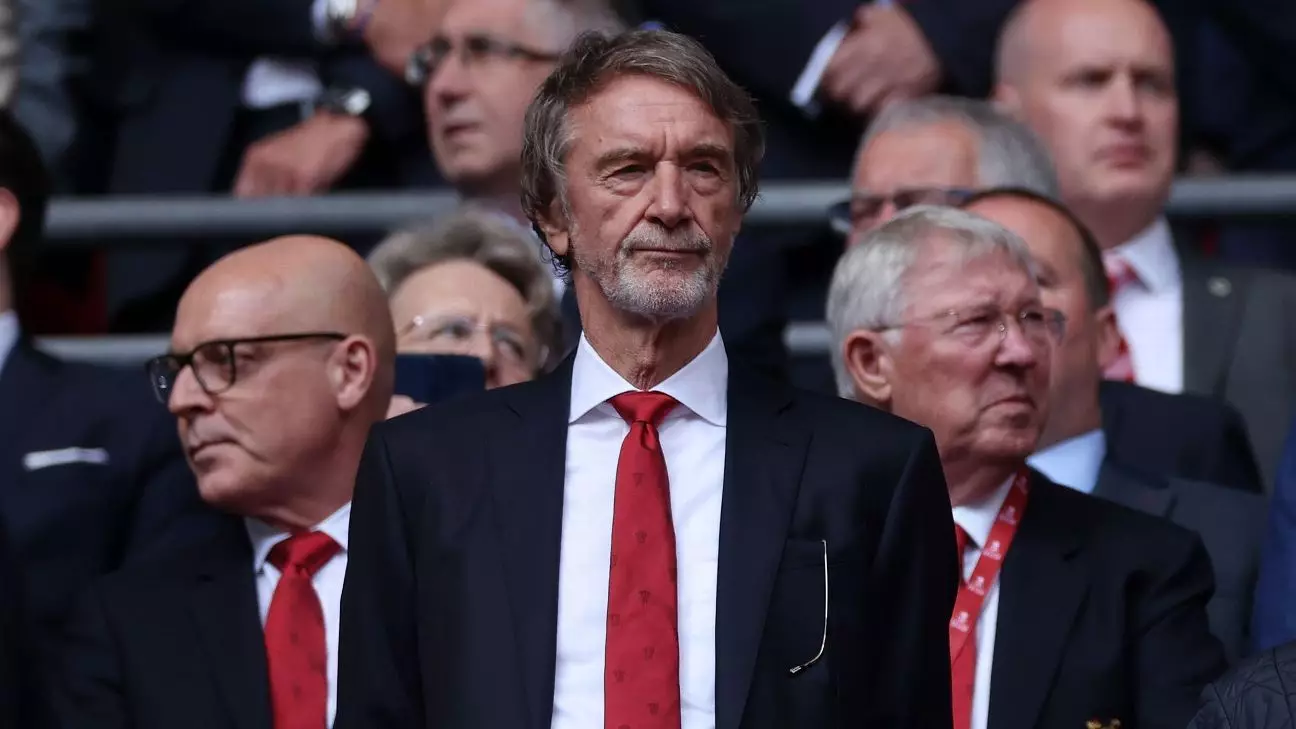The story of Manchester United has become one marked by tumult and concern in recent years. Sir Jim Ratcliffe, who recently bought a significant stake in the club, has boldly stated that the road to reclaiming the glory of Manchester United involves making “difficult and unpopular decisions.” This perspective underscores the urgency with which Ratcliffe views the club’s current trajectory. Despite their illustrious history and status as a footballing giant, Manchester United has been navigating a rough patch, struggling to keep pace with rivals like Manchester City and Liverpool.
The past year has been especially challenging for United, leading to the sacking of manager Erik ten Hag amidst criticism and disappointing results. With the club sliding dangerously close to replicating its previous season’s low point—the worst finish in its Premier League history—there was a palpable sense of needing to reassess its approach. The arrival of new manager Ruben Amorim has sparked slight hope, but the team finds itself languishing in the bottom half of the league standings, far from where the fans expect it to be. This lack of immediate improvement raises questions about the foundation upon which the club’s future is being rebuilt.
Ratcliffe’s candid remarks painting the club as “mediocre” reflect a harsh reality that fans and stakeholders are beginning to recognize. Once admired as a premier club on both domestic and European stages, the decline in standards is alarming. The new stakeholder’s assertion that drastic action is necessary resonates deeply within the Manchester community. Supporters are left wondering what exactly those decisions might entail, particularly when they involve parting ways with figures and traditions that have been integral to United’s identity.
United’s strategy for revitalization also highlights a tumultuous aspect of its financial situation. The decision to make nearly a quarter of the club’s workforce redundant showcases the drastic measures necessary to redirect funds towards improving on-field performance. By reallocating resources, Ratcliffe aims to instigate change that has been sorely needed. However, the question remains whether this approach can lead to actual improvement in results or merely serve as a stopgap solution.
Part of Ratcliffe’s vision involves addressing the legacy of Sir Alex Ferguson, whose influence has loomed large since his retirement. Ending Ferguson’s ambassadorial role signals a shift towards rejuvenating the club’s image and distancing from the past that has become intertwined with its struggles. This rebranding effort acknowledges the necessity for fresh perspectives and strategies if United is to reclaim its dominance.
The future of Manchester United under Sir Jim Ratcliffe’s leadership presents a blend of immense challenges and opportunities. While the path to regaining a top-tier status in football is fraught with obstacles, the promise of bold decisions and renewed ambition might just pave the way for a hopeful resurgence. The journey ahead will test the mettle of all involved, as fans eagerly await a return to the club’s former glory.

